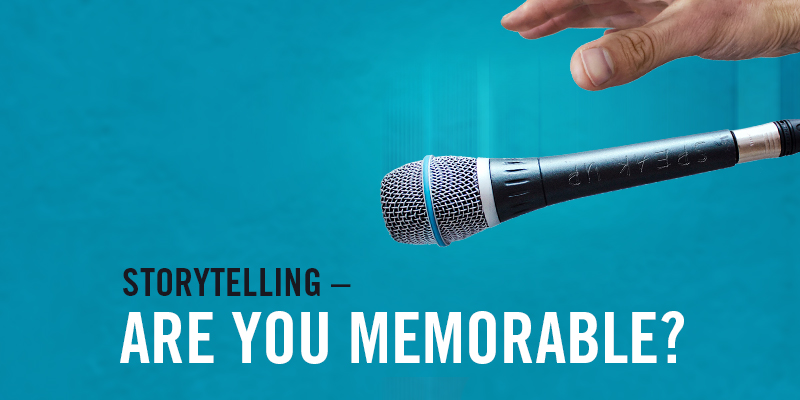Think about the last time you went to a convention or conference. What was the most memorable part? Was it a speaker, a certain booth or a sponsor giveaway? If you remember certain things but not others, it may be because you didn’t find the rest of the items memorable
At TVG, we coach our clients to be storytellers during their time in front of an audience, whether its one person or several hundred. Stories, no matter their length, should have four things: a beginning, middle and end, and they must be memorable.
One of the things we talk about with our clients is the value of the “brief, but memorable statement.” Think of it as the 2019 version of the elevator speech. We have less time than ever to make a good first impression, so we have to choose our words carefully. How many times have you introduced yourself at a meeting, a party, or at the baseball game, and the conversation moves on without a follow-up question? In order to be memorable, you need to have at least one, if not two or three follow-up questions. That will take you from someone’s short-term memory and upgrade you to their long-term memory.
Brief, but memorable statements can be simple. They take something incredibly complicated and make it understandable and conversational. A highway engineer who adds lanes to existing roads is a traffic pharmacist—they relieve congestion. If someone introduces themselves as a traffic pharmacist, you are almost compelled to ask a follow-up question, where the expert can give more detail on what they do. A neurosurgeon, who can stop and even reverse a stroke, is an expensive surgical plumber who breaks up blood clots and restores blood flow. The brief, but memorable statement normally takes two things that you wouldn’t think would work together, but they end up blending seamlessly. (Think chocolate and peanut butter.)
If you need help translating subject matter expertise into stories you can use, TVG also facilitates story mining sessions to uncover your best stories and craft your brief, but memorable statements. Storytelling can change the way you talk about your business and your client’s business that can help your bottom line now, and in the future. Give us a call or send us an email if TVG can help you up your storytelling game.
By Andy Likes, Senior Vice President

